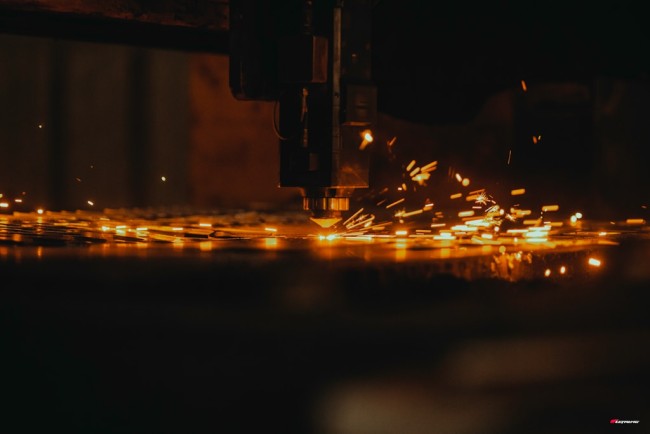CNC Forming – Precision Metal Bending for Modern Manufacturing

Modern metalworking technologies continue to evolve, offering increased precision, efficiency, and production flexibility. One of the most critical methods in shaping metal is CNC forming, a computer-controlled bending and forming process used to achieve a wide variety of shapes with exceptional accuracy. This process plays a key role in today’s production environments, enabling the realization of even the most complex designs. This article explores the fundamentals of CNC forming, its application in sheet metal forming, and the benefits this technology offers in terms of quality and manufacturing efficiency.
- CNC Forming – Advanced Technology in Precision Metal Shaping
- Sheet Metal – Forming Processes for a Wide Range of Applications
CNC Forming – Advanced Technology in Precision Metal Shaping
CNC forming refers to the process of bending and shaping metal using computer-controlled machines such as the press brake. With the use of advanced CNC technology, it is possible to achieve precise bends, perform multiple bends, and replicate exact specifications. Automated control over the process parameters not only improves efficiency but also ensures consistency in the production of components with various degrees of complexity.
This process is widely used in the production of brackets, enclosures, and other structural elements that require high accuracy and a defined bend radius. CNC bending and forming allow for the processing of a broad range of materials, including mild steel, aluminium, and copper, making the technology highly versatile.
Successful metal bending depends on selecting the appropriate tooling, which ensures the creation of the desired shape while maintaining proper parameters such as material thickness and angle. In this context, press brake machines are essential components of production lines based on CNC machines.
Sheet Metal – Forming Processes for a Wide Range of Applications
Sheet metal forming is one of the most important processes in the metalworking industry, used to manufacture a wide variety of components across different industrial sectors. Bending, stamping, and other metal forming methods make it possible to shape metal into various shapes while maintaining strength and durability.
Using CNC bending in sheet metal processing allows for full control over bend geometry, which is essential for structural parts that must meet strict standards. This approach makes it possible to manufacture almost any component design, regardless of its complexity.
This technology is used in industries such as automotive, aerospace, construction, and industrial equipment manufacturing. Working with metal in sheet form requires precise adjustment of process parameters to match the material type, thickness, and end-use of the part.
Production facilities employ high-performance machines capable of handling large volumes with minimal error margins. As a result, forming services become more accessible and economically viable, even for highly specialized or custom-built components.
The development of CNC forming has revolutionized the way sheet metal and other types of metal are processed in modern manufacturing. The ability to accurately replicate component designs, perform multiple bends, and work with materials such as steel, aluminum, and mild steel makes CNC bending and forming a cornerstone of efficient, precise production.
With the use of computer-controlled machines and innovative tooling, it is possible to produce components that meet even the most demanding specifications. This allows for the creation of the intended shape, reduction of lead times, and improved flexibility in production planning.



